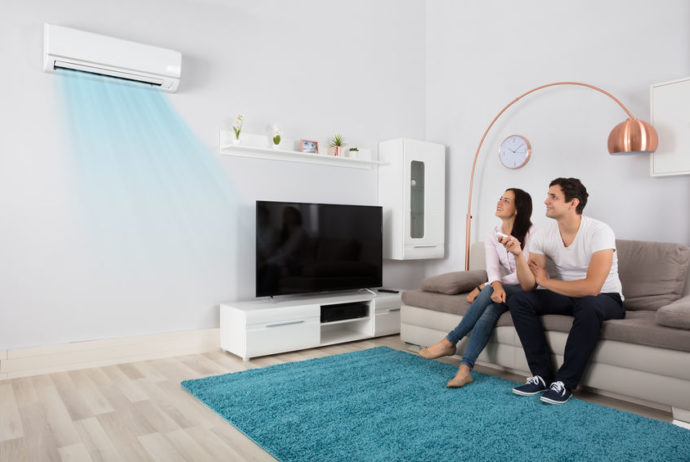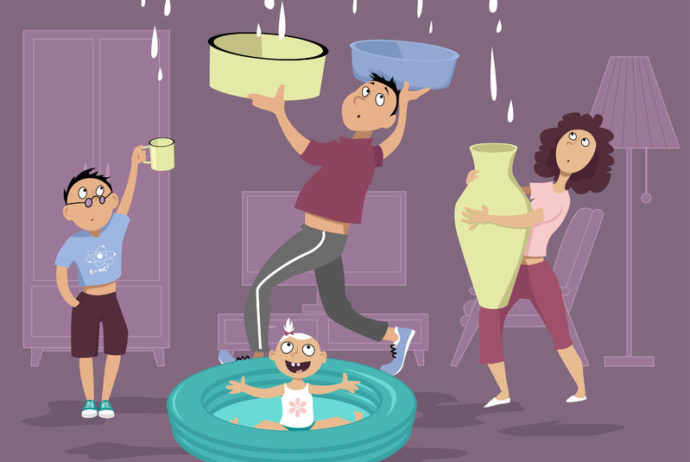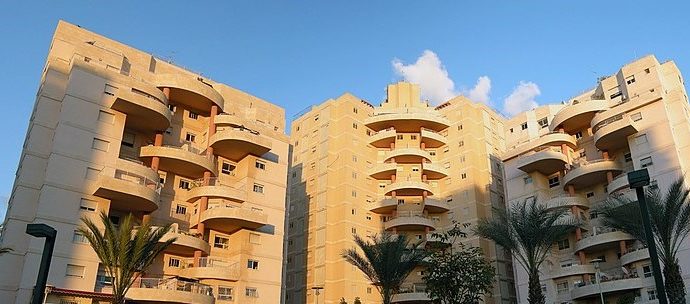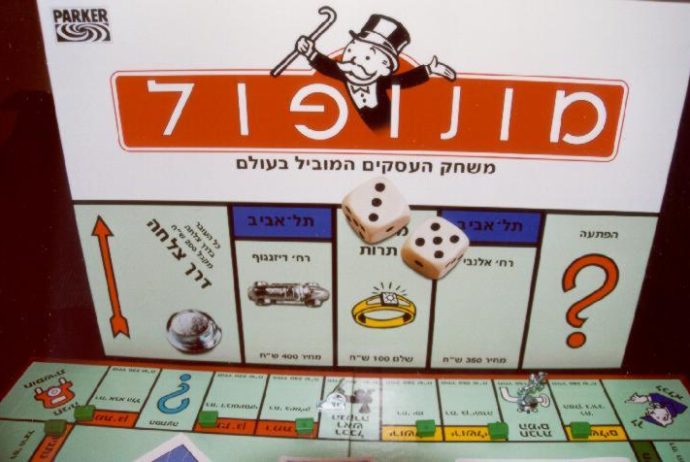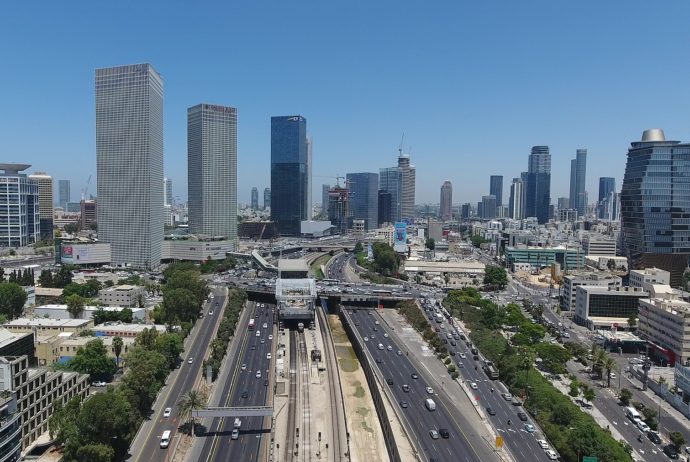With the rainy season about to start, here are our top ten tips for preventing any floods, leaks or pipe bursts in your Israel property this winter.
Israeli homes are really designed for the summer, which is generally three times longer than the winter season. Most houses and apartments are built with stone floors, poor insulation and minimal drainage systems, unsuited to coping with sudden rainstorms and even snow in some parts of the country.
At Creative Estates Israel, we have many years of experience in managing holiday homes and rental properties and pre-empting winter crises. From experience we know that all properties, whether tenanted or empty, should always be thoroughly checked at the start of the winter to ensure that they are weather-proof. Here is our checklist.
1) Cleaning Gutters and Drains
Before the first rainfall of the season, make sure that water cannot collect in places where it may cause flooding inside your property, such as window ledges, door sills and air conditioner pipes. Ask your upstairs neighbours to do the same, so that you do not find water leaking through your ceiling from their balcony. Your building manager (Va’ad Bayit) should also clear leaves and garbage from the drains and walkways around the entrances to the building, to prevent flooding and slipping accidents.
2) Checking for Leaks and Cracks
Water can seep through the smallest cracks and will always find the weakest points through which to escape, often causing leaks or dampness in the walls. You may be able to see the marks of damp or mold on the walls or ceilings showing where last winter’s leaks occurred. Persistent dampness during the winter months can cause allergies and breathing difficulties, as well as damaging furniture, furnishings and the building structure. Landlords are expected to protect their properties against leaks and dampness, and they may be held liable for damages caused to their neighbors if they fail to do so.
3) Water Heating Systems
Most residents and tenants only turn on their supplementary electric water heater when the weather turns cloudy and cold. If it has been unused during the summer, it is sensible to check your water heating system before you turn it on for the first time. Boiler systems may be used to power radiators as well as providing a supply of hot water, so you should have both functions checked. Lives can be saved by removing bird’s nests and other blockages from flues, because if the ventilation system is blocked when the boiler is turned on you might cause carbon monoxide poisoning. When calling a maintenance engineer, remember that Israeli boiler systems are known collectively as ‘Yunkers’, named after the original Israeli manufacturer.
4) Central Heating Systems
In apartment buildings, the central heating may be centrally controlled by the management committee, with fixed dates for turning them on and off. Individual apartments may have supplementary air conditioning units or other electric room heaters.
5) Positioning Room Heaters
Put safety first when positioning and using electric room heaters. Keep them out of reach of children and make sure that soft furnishings – curtains, cushions, mattresses and clothes – cannot fall onto them and cause a fire.
6) Adjusting Air Conditioning Units
Many people choose to use wall-mounted air-conditioning units for heating during the summer. If so, it is crucial to adjust the vents so that they point downwards to send warm air circulating around the room. Otherwise the upwards setting that you use for cold air in the summer will just heat your ceiling! Remember to clean the filters too.
7) Adding Window Insulation
Israeli homes have very little insulation, so precious heat can be lost through windows and walls. It may help to check that your trissim (window blinds) close tightly and do not rattle in the wind. Hanging curtains and putting draught-excluders along cracks in walls and under doors can keep help to keep the cold outside and the heat inside.
8) Preparing for Power Cuts
It’s not unusual for the power to go out at any time, so it’s good to prepare emergency back-up systems such as alternative power supplies for important appliances like freezers and computers, emergency lights for stair wells, and supplies of candles and matches. In some areas it is advisable to keep a kerosene heater or other non-electric heating source to keep you warm during extended power outages.
9) Protecting Water Pipes
If your home is in an area where the pipes may freeze, we recommend leaving a tap dripping slowly during very cold periods, to prevent pipe bursts. It’s a good idea to disconnect outdoor watering systems during the winter, to save water and to protect the pipes and connectors from damage.
10) Checking on Empty Properties
If there are empty properties in your building that are not taken care of, all the above problems can spread from their apartment to yours. Leaking pipes that go undetected can cause long-term water damage in other parts of the building. If you know that your neighbours are going away for the winter, recommend that they get a property company to check on their home.
Creative Estates Israel manages properties all over central Israel and we send our maintenance teams to every property to check that everything is ready for winter and stays water-tight. To speak to Creative Estates about checking and managing your property in Israel, contact Shaun@CEIsrael.com

